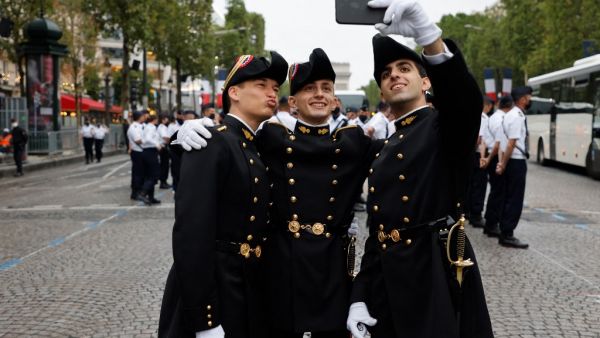Today we celebrate Bastille Day, a turning point during the French Revolution that would give birth to a new nation of values and ideals rooted in liberty, equality and fraternity.
The traditional parade on France's national day returns after a one-year hiatus due to the Covid-19 pandemic. It isn't a day for reflection or politics.
It's time to raise the ?? flag - happy #BastilleDay to French people and francophiles throughout the world!
— France Diplomacy?? (@francediplo_EN) July 14, 2021
This ceremony is brought to you by the #GardeRepublicaine of the @Gendarmerie Nationale. pic.twitter.com/tTlOknlHRF
It is a day of leisurely family activities and celebrations, adorned with a lavish military parade displaying French power on the Champs-Elysées. Emmanuel Macron will preside over the ceremony. The parade in Paris will be a scaled-down version of the usual event, with only 10,000 people in the stands instead of 25,000.
The NATO Defense College wishes our Ally #France ??a happy National Day!#BastilleDay #14Juillet#WeAreNATO #WeAreAllies @FranceOTAN pic.twitter.com/JleffzQhYv
— NATO Defense College (@NATO_DefCollege) July 14, 2021
The most common misconceptions about the French national day are that it is a celebration of the anniversary of the storming of the Bastille on July 14, 1789, and commemorates the official beginning of the French Revolution. It is, in fact, a far more complex story.
Happy Bastille Day! pic.twitter.com/XTZGfj2FBU
— Dermot Looney (@dlooney) July 14, 2021
Back in July of 1789, France had already experienced a rough summer that included food shortages, high taxes, and the militarization of Paris.
That fear culminated on July 14 in a march to the Hôtel des Invalides to loot firearms and cannons, and a resulting trip to the Bastille for proper ammunition. That hunt for gunpowder—not the hope of freeing prisoners—was the main reason for the storming of the Bastille.
The events that followed—the freeing of the few prisoners that remained at the Bastille, but also a deadly battle and the brutal beheading of the prison governor and his officers—were more of a side effect of a chaotic uprising, rather than its intent.
time.com
? And this is how you do a #14Juillet #BastilleDay ❤️❤️❤️ https://t.co/PWhxgzZVeG
— Anne Geurts (@Geurtie) July 14, 2021
July 14, often called la fête Nationale in France, became an official holiday in 1880. From the beginning, speeches, military parades, and fireworks, along with public revelry, were part of the celebration. The slogan “Vive le 14 Juillet!” (“Long live the 14th of July!”) has continued to be associated with the day.








